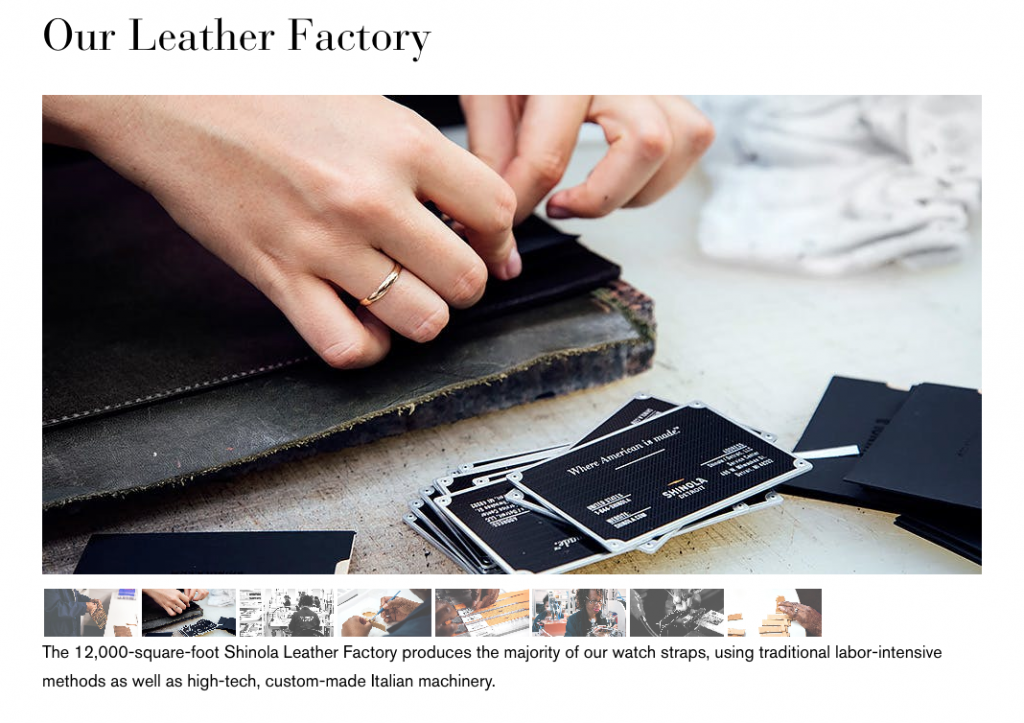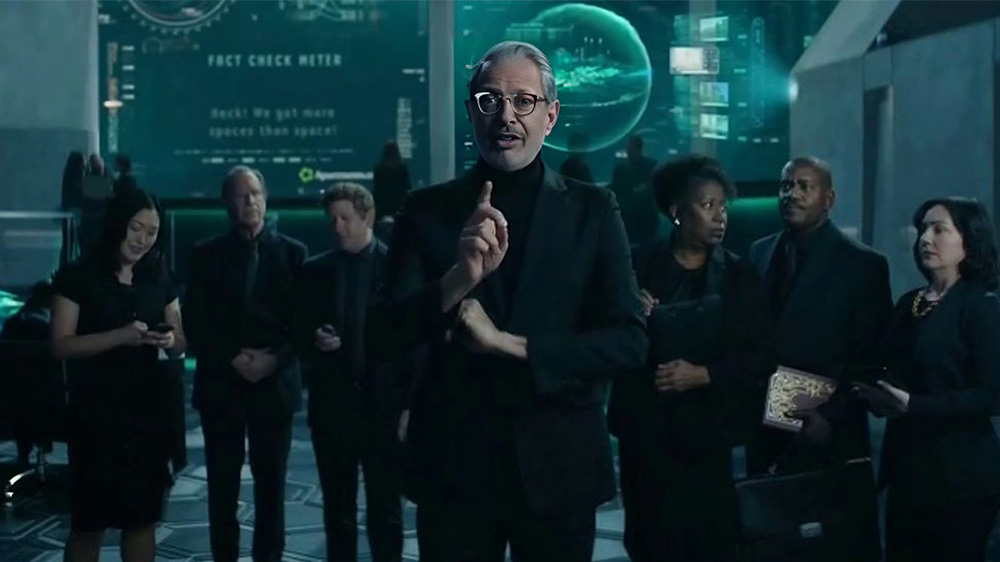
When TINA.org Investigations Collide
These brand collabs are far from fab.
In focusing on express claims, did the FTC overlook implied claims that convey the same message?
| Jason Bagley
For years Shinola marketed its luxury watches as “built” in Detroit. “To build the first handmade watches in Detroit, we had to build the first watch factory in Detroit,” the company boasted on its website in 2013, a year after it had put the finishing touches on a 12,000-square-foot space in the Motor City.
Then, in 2016, the FTC put an end to the company’s unqualified “built” in Detroit claims after finding that certain Shinola watches consist entirely of foreign parts. While final assembly may occur at the company’s watch factory in Detroit, the FTC considers a “built” in the USA claim to be the same as a “made” in the USA claim. For a product to be marketed as “made” in the USA, “all or virtually all” of the significant parts and processing that go into the product must be of U.S. origin. Going forward, if Shinola wanted to promote a watch containing significant imported materials as “built” in Detroit, it would have to append qualifying language such as “with Swiss and other imported parts.”
But in focusing on direct, express claims like “built” in Detroit, the FTC may have overlooked less obvious, implied claims that communicate the same message. I’ll put it this way: Shinola can say its watches are built in Detroit without saying its watches are “built” in Detroit. There are only so many conclusions one can draw from a watch that has the words “Shinola” and “Detroit” in close proximity to each other on its watch face. (The back of each watch, or caseback, notes that the timepiece contains “Swiss and imported parts.”)
Online ads with the “Shinola Detroit” tag reinforce the implied message that Shinola watches are made in the USA, even as the company now acknowledges on its website that “[e]very Shinola watch is built in Detroit with Swiss and other imported parts.”
Yet the FTC seemed to have no problem with the “Shinola Detroit” language, which preceded its inquiry. One possible explanation for this is that the FTC interpreted “Shinola Detroit” as a brand name. According to the agency’s Made in USA standard (see Brand names and trademarks):
Ordinarily, the Commission will not consider a manufacturer or marketer’s use of an American brand name or trademark by itself as a U.S. origin claim. … Assuming that the brand name does not specifically denote U.S. origin (that is, the brand name is not “Made in America, Inc.”), using the brand name by itself does not constitute a claim of U.S. origin.
In its 2016 closing letter to Shinola’s parent company, Bedrock Manufacturing Company, LLC, the FTC listed “Shinola/Detroit, LLC” as the company’s name.
The thing about Shinola is that its whole marketing scheme has been centered on the city of Detroit from the start. When the company launched it proclaimed Detroit “the new watchmaking capital of [A]merica” and predicted that one day “they’ll call Geneva the Detroit of Switzerland.” For years before the FTC stepped in consumers had it pounded into their heads that Shinola watches are made in the USA, including through an old company slogan, “Where American is Made.” Wouldn’t the FTC want to set the record straight and leave no room for confusion?
Fortunately, the agency still can.
Citing concerns that Shinola “may make deceptive U.S.-origin claims in the future,” the FTC wrote in its 2016 letter that while it was not going to recommend enforcement action, it “will continue to monitor the Company’s advertising closely.” It’s worth noting that because the FTC did not elevate the inquiry to an enforcement action, there was no press release that went along with the closing letter, which arguably had an effect on media coverage. Shinola also wasn’t required to inform consumers (who did not receive refunds) about the inquiry, so they could keep on believing that Shinola watches are made in the USA, in spite of the FTC’s findings.
If the FTC needs another reason to reopen the case, Shinola has yet to retire its “Where American is Made” slogan, despite telling the FTC that it would transition away from the tagline (see writing on cards below).
 And new on the implied made in the USA claims front, Shinola has recently taken to tagging Instagram posts #WithLoveFromDetroit.
And new on the implied made in the USA claims front, Shinola has recently taken to tagging Instagram posts #WithLoveFromDetroit.
In response to a TINA.org inquiry following the publication of the FTC closing letter, Shinola founder Tom Kartsotis pushed back against the agency’s Made in USA standard, specifically its requirement that products marketed as American-made comprise mainly (“all or virtually all”) of domestic parts.
“As you can imagine, many of the components and raw materials are simply not available in the U.S. and because of that we are unable to meet the almost unattainable ‘Made in the USA’ standard created by the government,” Kartsotis said at the time.
But who’s telling Shinola that it has to market its watches as American-made? The answer is nobody. While the company is well within its right to highlight its Detroit watch factory and the people who work there, if the overall marketing implies something that isn’t true, it’s deceptive. It’s as simple as that.
These brand collabs are far from fab.
While these ads can be appreciated by all, they may strike a chord with ad lawyers.
For Mike Huckabee’s next trick, a supplement that is ‘clinically proven’ to help users fall asleep, stay asleep and wake up refreshed.

